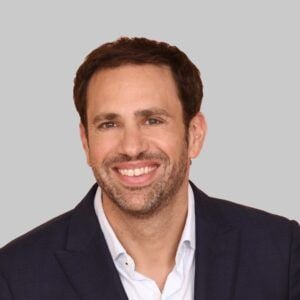Yesterday, HonestReporting took a group of 50 of our supporters on a field trip around Israel to discuss security issues with a very special guide: Col. Grisha Yakubovich (Res.), the former head of the Civilian Department in the IDF’s unit for Coordination of Government Activities in the Territories (COGAT).
COGAT is a unit in the Israeli Ministry of Defense which coordinates civilian issues between the Israeli government, Palestinians, and relevant international organizations in West Bank and Gaza. Now retired, Col. Yakubovich (Res.) remains active: consulting for international NGOs and governments and even doing miluim (reserve duty) in the IDF.
Join the fight for Israel’s fair coverage in the news
Fluent in Hebrew, English, Russian and Arabic, Yakubovich has spent a 27 year career both defending Israel, and working together with Palestinians in the West Bank and Gaza. Sometimes this has meant looking out for Israel’s security, but other times it has meant working to provide water, electricity, transportation and basic safety and stability for the Palestinians.
His varied experiences have given Yakubovich a realistic and also highly nuanced view of the realities “on the ground.”
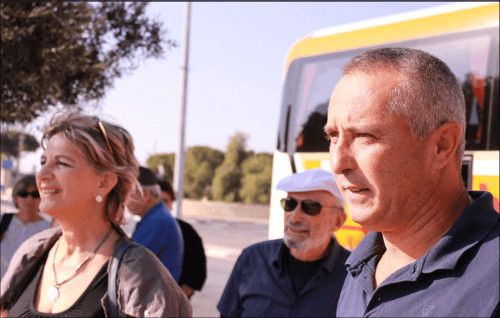
The relationship between Israelis and Palestinians is not as simple as headlines would have us believe.
Even as Col. Yakubovich (Res.) focused on challenging security concerns, he frequently reminded us of the positive potential for Israelis and Palestinians to live as peaceful and productive neighbors.
There are solutions for every problem, if both sides have the will. Sometimes the solutions are not easy, but they can be done. So it is simple. And it is also complex.
While we stood at outlooks above Israeli and Palestinian towns, Col. Yakubovich (Res.) pointed at parts of the Green Line, security fences and roads, as he explained the periods of war and terror that made them necessary. But Yakabovich also provided a rare insight into what all these security measures mean for day-to-day life, behind the headlines.
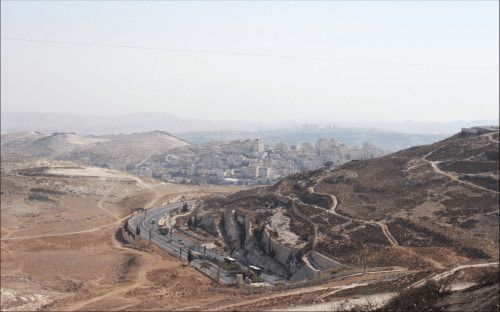
Using specific examples of accomplishments Israel has made throughout the years, as well as mistakes, Yakubovich outlined his vision for the future: one in which Israel and Palestinians work, carefully, toward a better future, even in the face of violence, terror and international pressures.
He sees jobs, economic growth and basic services as being security tools: every bit as much as military operations and intelligence work. For example, we visited Yakubovich’s Palestinian friend Yassir at his successful gardening store in the West Bank, where he sells to Israelis and Palestinians. Yassir’s business builds cooperation, jobs and local prosperity, which, according to Yakubovich, creates pressure within Palestinian communities to reduce violence and terror.
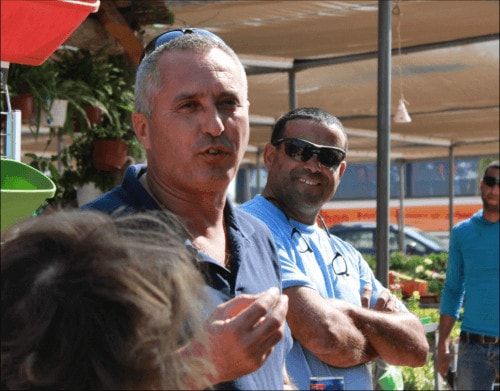
But don’t think for one moment that this veteran soldier is naive: he knows that the very same resources that can improve lives and decrease terrorism, (such as electricity) can also power a rocket factory. Opening a security fence can improve a local economy but can also provide a transport route for weapons and terrorists. And there is pressure on Palestinians to avoid doing anything that could be considered “collaborating” with Israelis, even if it benefits Palestinian communities.
So what to do about this dilemma? Col. Yakubovich (Res.) returns to his favorite mantra:
It is simple. And it is also complex.
Since moving to Israel five years ago, I’ve had more in-person, day-to-day interaction with Israeli Arabs, Druze, Bedouins and Palestinians than ever before. For example, at the last HonestReporting Mission, we visited the home of Ishmael Khaldi: an Arab/Bedouin Israeli, and a diplomat who represents Israel to the world.
We learned about Khaldi’s dedication to Israel, along with his deep connection to the values of Bedouin community life. Khaldi takes pride in the important role that his family and community play as part of Israeli society. This was a real window into one of Israel’s many minority communities playing a productive role in society that doesn’t always make the news.
So sometimes, I think I know quite a lot, but…
…then I spend a day experiencing the depth and knowledge of people like Diplomat Ishmael Khaldi or Col. Grisha Yakubovich (Res.). These kind of rare and special experts never fail to surprise, inform and open my mind to complexities and possibilities I’d never before considered.
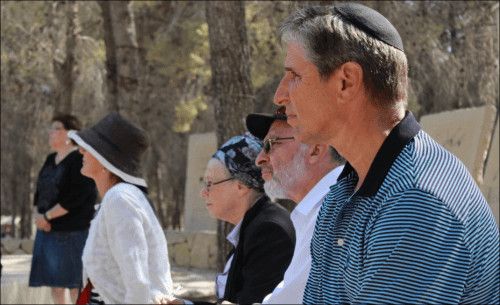
When Israelis and Palestinians coordinate, we see real improvements in daily life for everyone. But when violence dominates, so do security measures. I learned from Col. Yakubovich (Res.) that there are solutions for every problem: but only if all parties are creative enough — and brave enough — to find them.
If you would also like a peak behind the headlines, come join us on our next one day field trip or week long mission: learn more by clicking here.
We’d love to see you next time!

